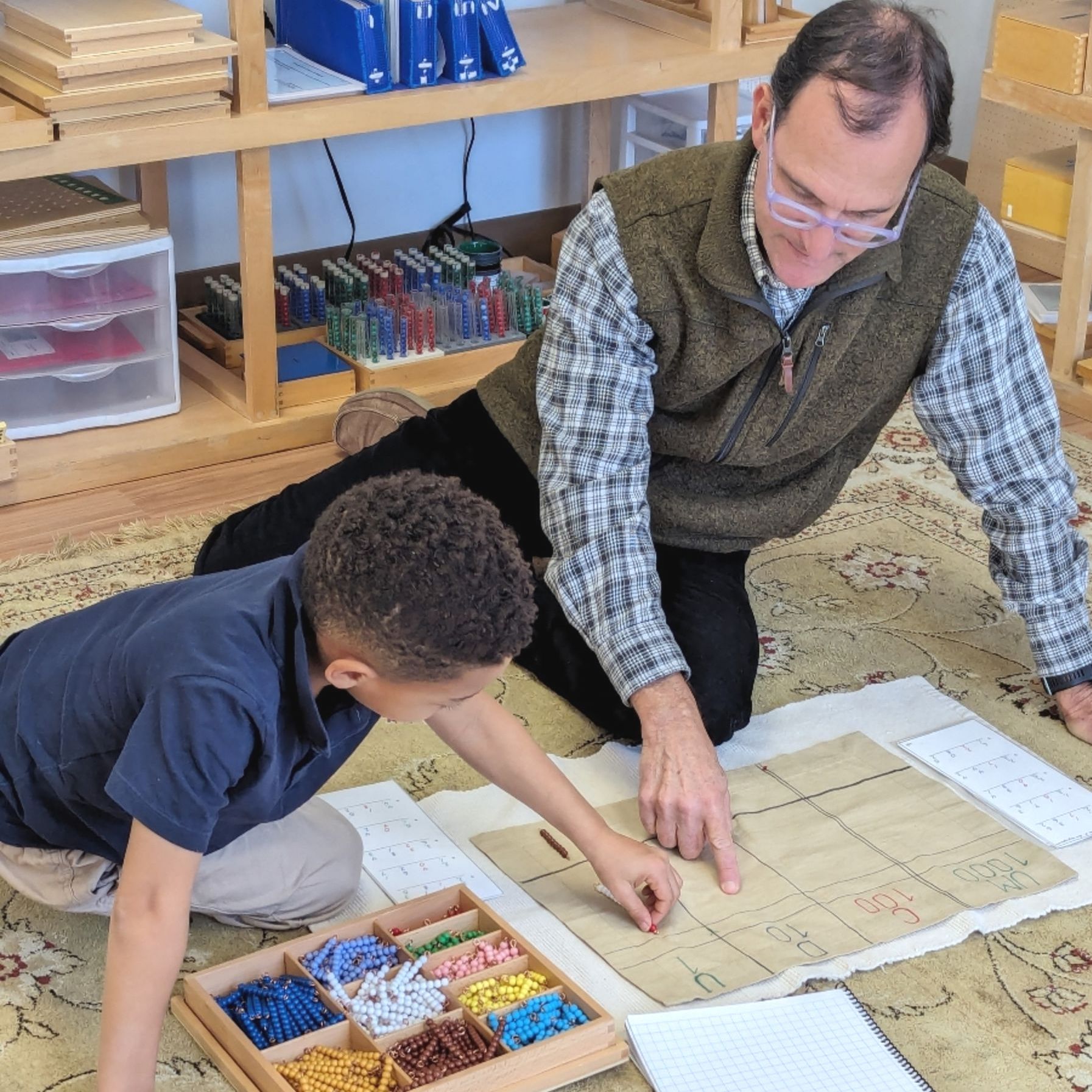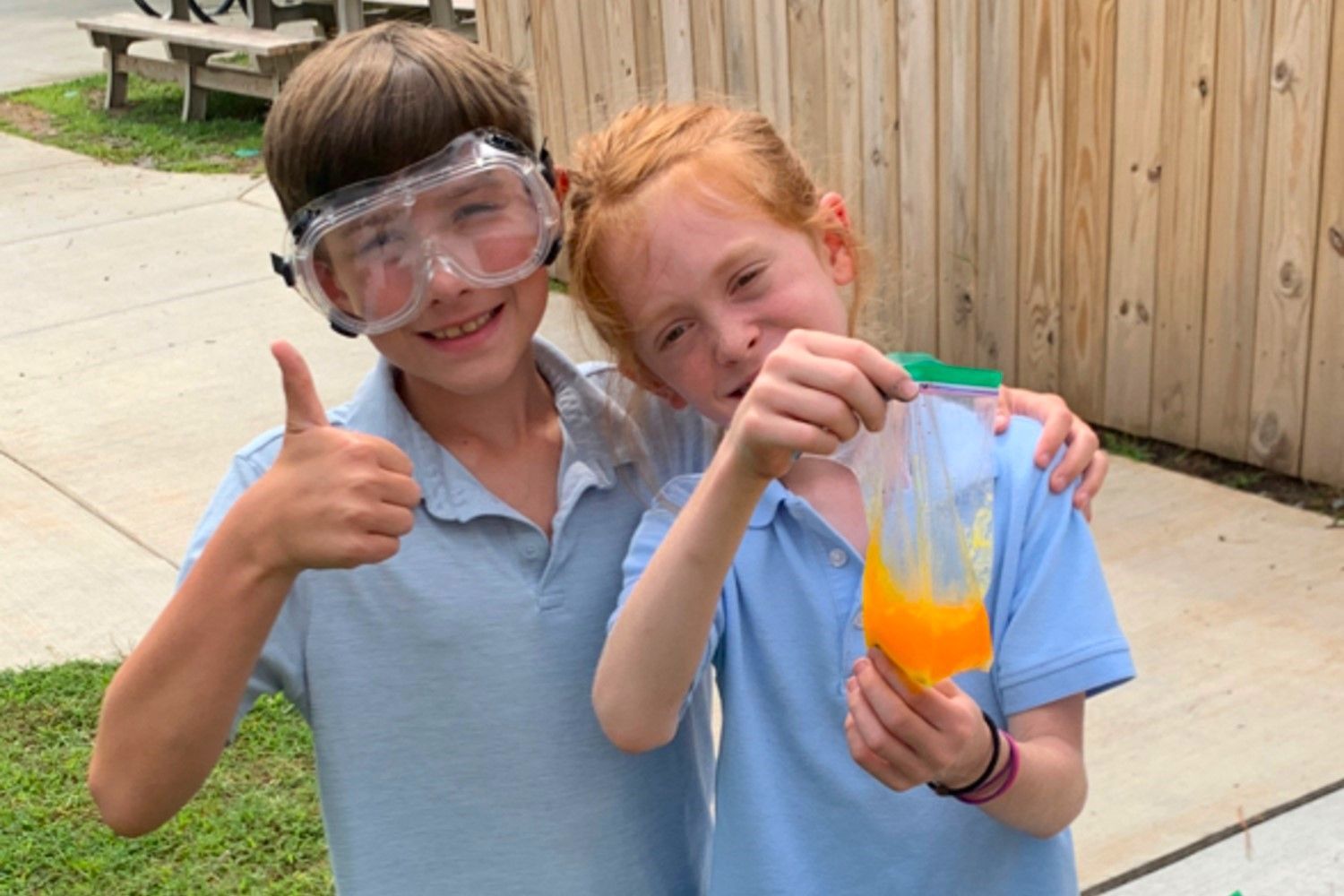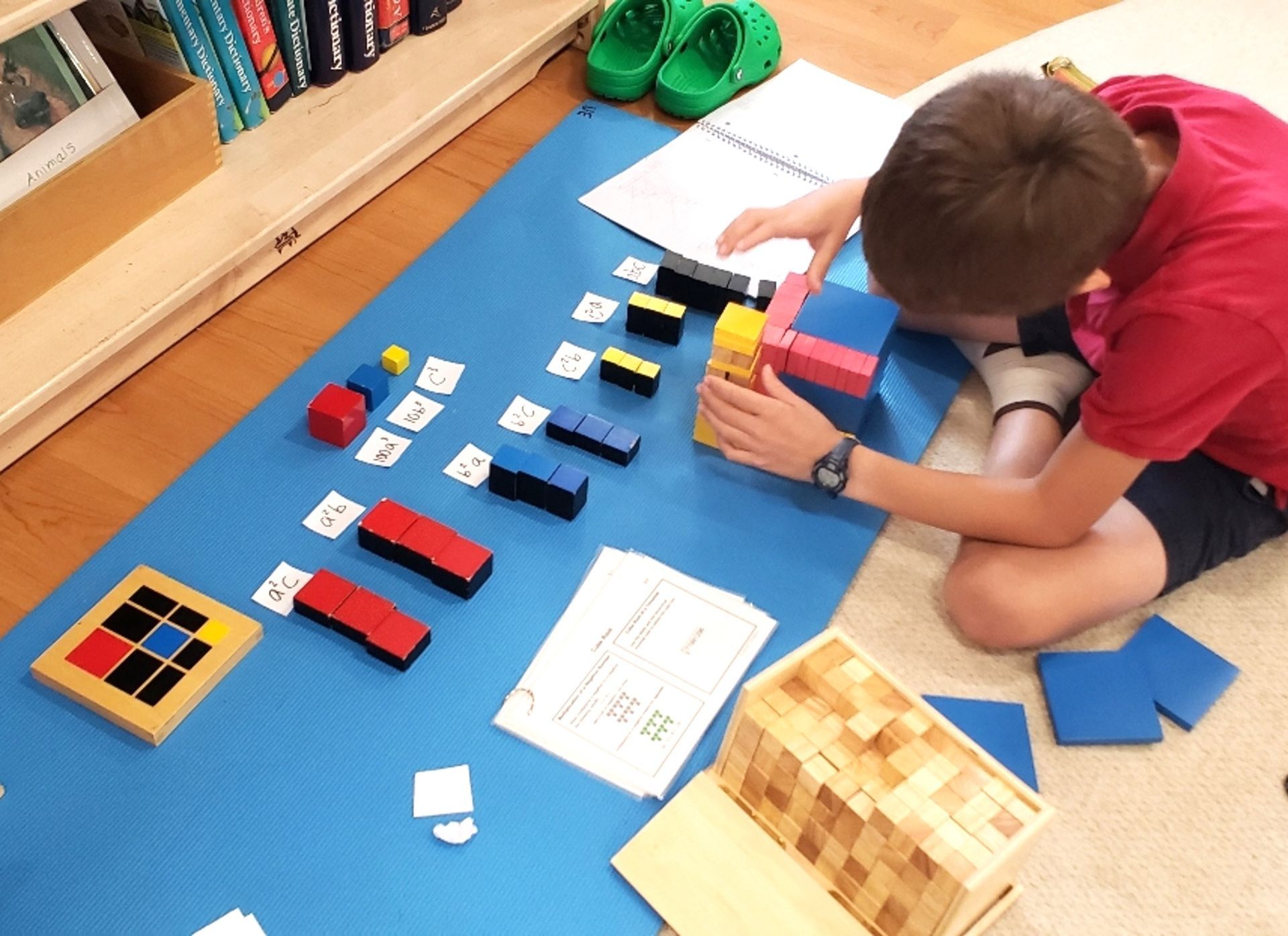ELEMENTARY
6 – 12 years
Language Immersion
Lower Elementary (ages 6 to 9, grades 1-3)
Lower elementary classes are delivered entirely in the language of the classroom. Children are given the opportunity to become more productive in the immersion language, practicing both social and academic language as they are learning classroom content. Due to the nature of this program, students must demonstrate language proficiency in their target language to ensure academic success.
At this level, students also have a separate English class to focus on the mechanics of reading and writing in English. One morning and one afternoon work cycle each week is with English teachers. Students spend approximately 20% of their week learning in English. IMS' English curriculum focuses on studying parts of speech, expanding vocabulary, written expression, and reading comprehension. Particular attention is paid to how English mechanics differ from the child’s immersion language.
Art, Music, and PE classes are offered once a week in English. Students also participate in day-long field trips at various times of the school year.
Upper Elementary (ages 9-12, grades 4-6)
Children in upper elementary spend their morning work cycle in an English-based classroom, working extensively in English in science, mathematics, history, and geography. Every afternoon and for one full day each week, the students break into language cohorts to continue learning in an immersion environment. Students spend 70% of their week learning in English. This allows children from all language immersion tracks to join together in a single class, providing new academic peers and a new learning environment.
The remaining 30% of the week is spent in their immersion language classroom, focusing on learning content in the immersion language and enhancing language study. Due to the nature of this program, students must demonstrate language proficiency in their target language to ensure academic success.
Art, Music, and PE classes are offered once a week in English. Students also participate in overnight field trips as part of the curriculum twice a year.
Learning without Limits
Your child will study both broadly and deeply, covering many subjects not attempted in conventional schools. Because there is not a rigid schedule or prescribed curriculum that the whole class must follow, your child can focus intensely on self-chosen work, with minimal interruption. At the same time, they will collaborate with the teacher to ensure that work is challenging and purposeful – and that basic standards are met. The teacher acts as a guide is responsible for foundational skills and content learning - your child is in charge of digging deeply into their interests and passions.
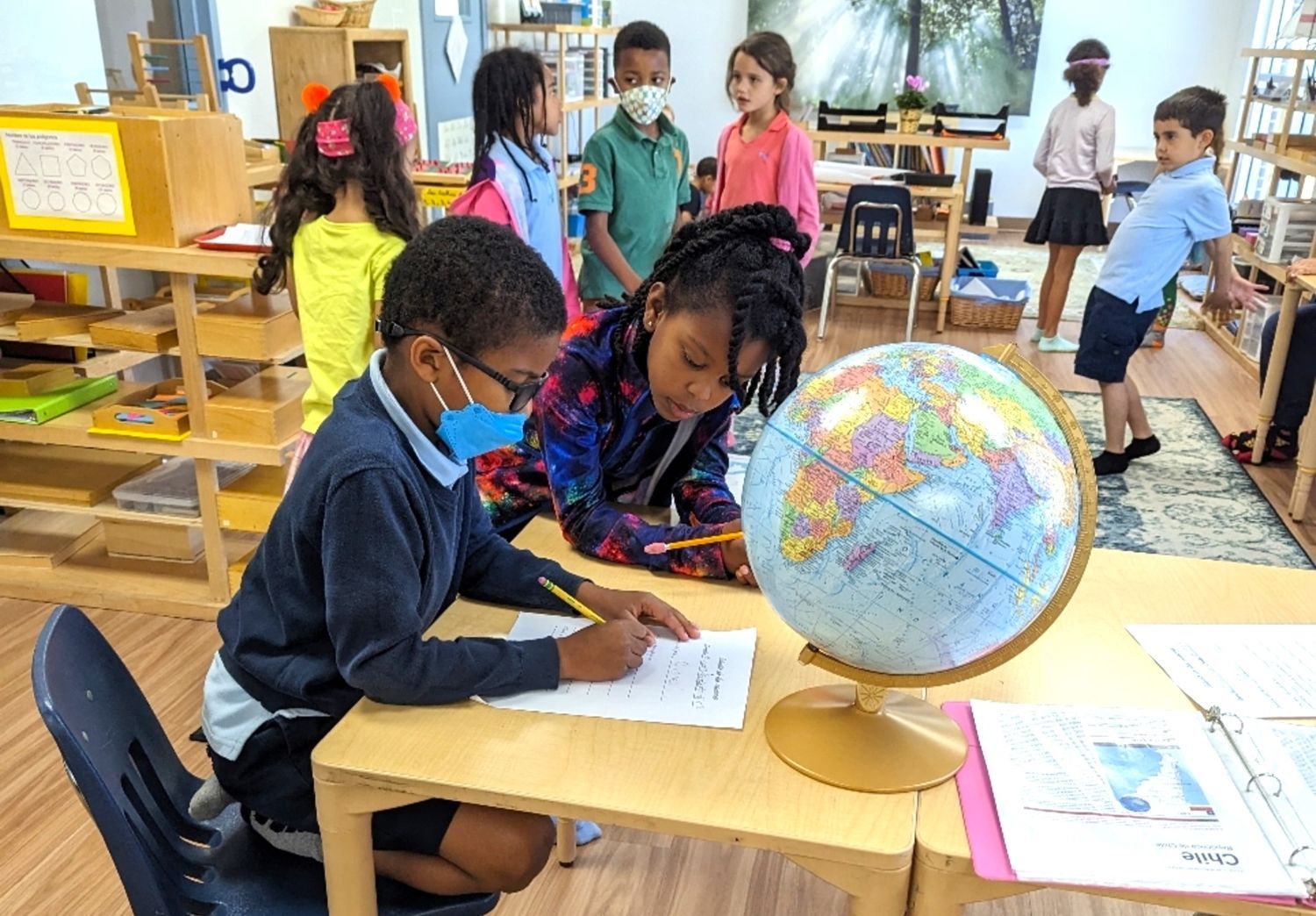
The Teacher is an “Enlightened Generalist”
To quote Bruce Lee: “A teacher is never a giver of ‘truth;’ he is a guide, a pointer to the truth that the student must discover for himself.” We couldn’t agree more. Teachers have a broad knowledge of all subject areas – more than enough to help your child discover interests in any area imaginable and challenge them to deepen the field of study through research.
The Format Mirrors Your Child’s Developmental Needs
Elementary-age children have a strong drive for social connection. They are starting to develop deeper friendships and a connection to the community around them. Why then, would we want them to learn in rows of desks, confined to a chair, while the teacher lectures the class as a group? Instead, we embrace your child’s natural need for social exploration by giving lessons in small groups and encouraging children to work with a variety of others on follow up projects and research into subjects of intense interest.
Engagement is Essential
Real learning occurs when children are engaged – not when the teacher makes a blanket assignment. Curiosity is championed in our Elementary program, and your child is encouraged to explore concepts to a level of detail only limited by their imagination.
Learning Occurs Beyond the Classroom
We want the children to be comfortable navigating the world, not just our classroom. As a result, the children must ‘go out’ beyond the limits of the classroom to find the information or resource they need. A ‘Going Out’ is a planned undertaking by a small group of children, preparing themselves for the experience and conducting themselves with dignity while out in public. Elementary students also enjoy weekly classes in art, music, and physical education.
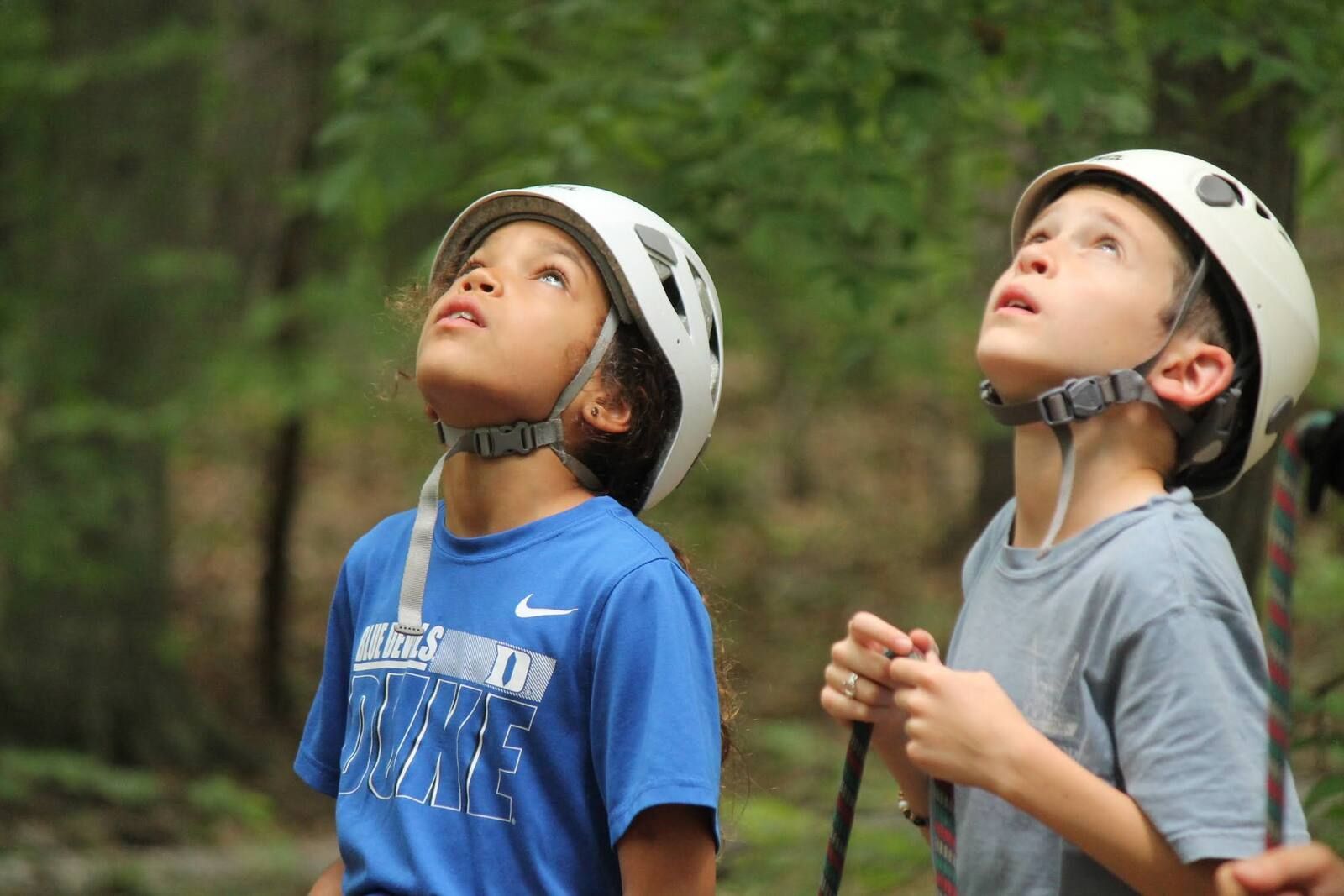
Developing Flexibility, Resilience and Grit
We believe children learn to be adaptable by supporting them to solve their own problems, rather than solving problems for them. With the help of a supportive adult, your child can, most often, find the solution that is best for him.
Learning in Context for Deeper Understanding
Unlike in a conventional program with a separate time of the day for each subject, your child will gain a much deeper understanding of concepts by learning in context. The starting point for all courses of study is the “Great Lessons;” these impressionistic and scientific stories give your child the big picture of astronomy, earth science, geography, physics, biology, history, anthropology, cultural and social studies, language, math, music and art. Meaningful learning happens when children understand the “why” as much as the “what” – and are inspired to learn even more on their own.
Achieving a State of Flow
Think about how you do your best work. Is it when you are interrupted by others or when you work to an external time table? Probably not. Why, then, is it any different for your child? Our class day consists of long, open ended work periods that respect your child’s curiosity and concentration. They may choose to form or join a group to work with concepts introduced in a lesson, or work on something individually. Because children are free to move around the classroom, it’s not uncommon for ideas to spread; children are stimulated not just by the lessons they receive, but by each other.
Learning as its Own Reward
We have high expectations for your child, and believe that rewards and punishments appeal to the lowest levels of their intellect. Given a sticker, children will do their best for a few minutes. Given experiences that help them believe in themselves and their abilities, a child will do their very best for a lifetime.
Lower Elementary Language Immersion
Children spend 80% of their week in a full-immersion French, Spanish, or Mandarin Chinese classroom. 20% of their week in an English Language Arts classroom.
Upper Elementary Language Immersion
Children spend 70% of their week in an English-based Montessori classroom. The remaining 30% is in a full-immersion French, Spanish, or Mandarin Chinese classroom.
Length of Day
- Regular day: 8:15AM-3:00PM
- After School: 3:00PM-5:30PM

